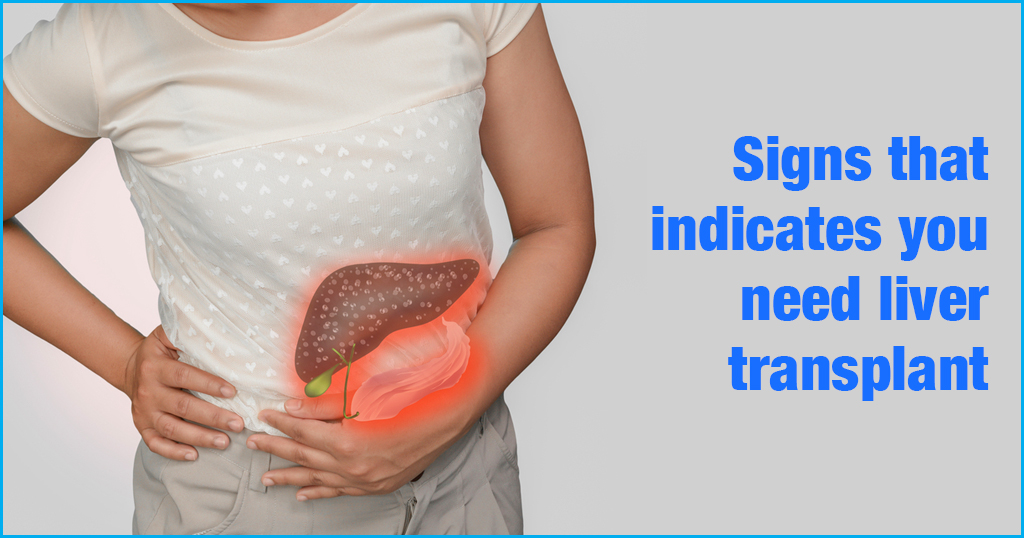Overview
Liver transplant is a major surgery which requires a high level of expertise and modern state-of-the-art facilities. The transplant committee which includes – Hepatologist, Transplant Surgeon, Psychiatrist, Anesthesiologist, Transplant co-ordinator etc. assemble and evaluate the case to decide the right candidate for transplant. Apart from medical reports, various other aspects like – physical, mental, social and financial factors are also considered.
When does one require a liver transplant?
Not all individuals with a liver problem or disease require a liver transplant. Listed below are the reasons for considering liver transplant for an individual:
- Chronic liver failure due to cirrhosis (late stage of fibrosis of the liver). Causes for cirrhosis are:
- Alcohol-related liver disease
- Hepatitis B and C
- Non-alcoholic fatty liver disease
- A disease affecting bile duct of the biliary system
- To treat cancer that originates in the liver
- Acute liver failure
- Inherited genetic disorder leading to deficiency of Alpha-1-antitrypsin
- Biliary Atresia (a rare condition in children, in which bile duct is blocked or damaged)
- Wilson’s disease (accumulation of copper in the liver)
What is the pre-evaluation process for liver transplant?
The pre-evaluation process for liver transplant decides whether or not you are considered for liver transplantation. It involves a detailed evaluation of your disease. You will also meet the members of the transplant team and can discuss your concerns related to the surgery or recovery process.
Evaluation includes:
- Clinical evaluation and detailed medical history
- Blood workup
- Radiological evaluation
- Investigation to check other organs – heart, lungs and kidneys
- Psychological and social assessment
Purpose of the evaluation is to:
- Confirm and stage liver disease.
- Check for present infections
- Evaluate the function of the heart, lungs, kidney.
- Evaluate your ability to undergo and survive a complex surgery.
- Check any alcohol, drug or smoking habits.
- Check the spread of cancer outside the liver (for cancer patients).
- Answer your queries.
- Whether you will adhere to the new lifestyle after transplant and follow doctor’s instructions.
Who gets priority for liver transplant?
Once the liver transplant is considered for you. You will be kept on a national waiting list. The patient is provided a priority score, for an adult – MELD score (Model of End-stage Liver Disease) and for children PELD (Paediatric End-stage Liver Disease).
The score is calculated based on the following investigations or factors:
- MELD score – Bilirubin, INR, Creatinine and Serum Sodium.
- PELD score – Bilirubin, INR, Albumin, Growth failure and whether the child is less than one-year-old
The sicker you are, the more will be your score. Patient with the highest score gets transplanted on priority. While you are waiting for a transplant, the doctor will discuss, how to take care of yourself till you get the transplant.
How is the liver transplant decision made?
After the patient is placed on the waiting list. The transplant committee will review each case.
To qualify for a liver transplant:
- Patient should be suffering from chronic liver disease, that has not responded to any treatments including surgery.
- Patient should be able to tolerate such a major surgery.
- Patient and the family member should understand and agree with the transplant procedure and aftercare.
- Liver cancer patients are only considered if cancer doesn’t have a spread and only originates in the liver.
- Patient should not have any habit of alcohol or drugs or smoking
- Patient should not have any psychological problem.
Does the presence of alcoholism affect the decision for a liver transplant?
Yes, Liver transplant for a patient with Alcoholic liver disease is considered subject to some conditions. Abstinence from alcohol is the foremost factor in deciding liver transplantation for alcohol-related liver disease. In the pre-transplant assessment, the psychiatrist will evaluate whether the patient will be able to take care of the new liver and change lifestyle. Often, relapse to alcohol after transplant is a major concern, as it can lead to significant problems.
Conclusion
In the present scenario, the number of livers available for donation is much lesser than the number of patients waiting for a new liver. Liver transplant though considered as a life-saving surgery for a patient with end-stage chronic liver disease also can fail due to reasons like other organ diseases, diabetes, infection etc. Based on the pre-evaluation test results and other factors, there are chances that the doctor might not find you suitable for liver transplant i.e. the transplant is unlikely to succeed.


















